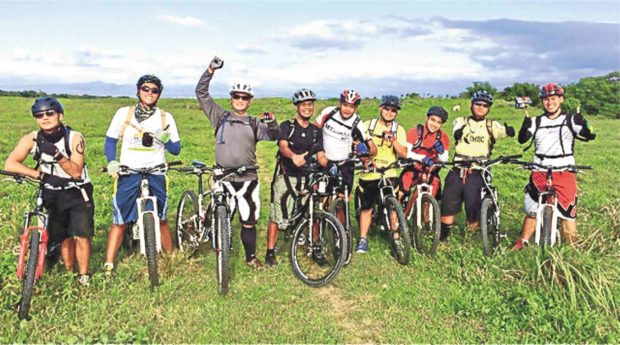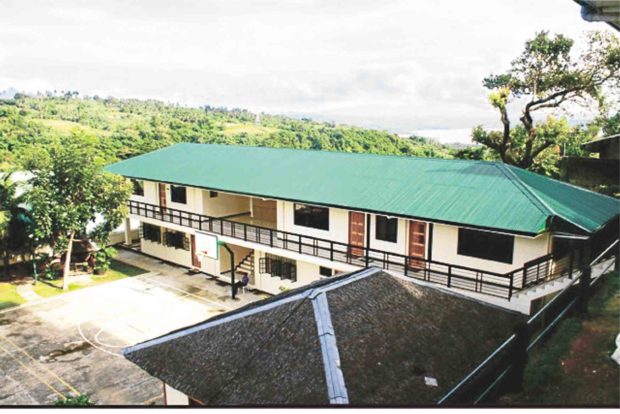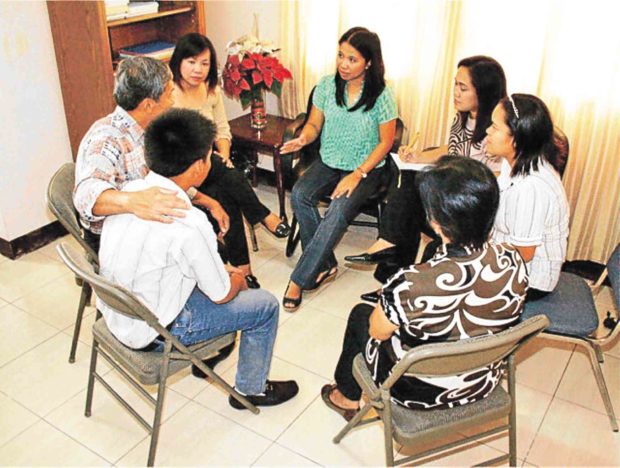View to a cure: Taal View House has become a drug depedents’ refuge

ON THE ROAD TO RECOVERY Inmates at Self Enhancement for Life Foundation enjoy the open spaces around Taal View House. —CONTRIBUTED PHOTO
TALISAY, Batangas — Nestled atop a logged-over hill overlooking Taal Lake is the sprawling 3-hectare Taal View House, a drug rehabilitation facility that has become a refuge for about 100 inmates undergoing treatment for drug abuse and other behavioral issues.
“Drug addicts are curable,” said Martin Infante, founder and president of Self Enhancement for Life Foundation (SELF), a nonstock, nonprofit foundation that operates Taal View House.
A number of inmates have successfully kicked their drug habit and resolved their personal issues and have returned to society to become productive citizens, Infante said. The rate of relapse has also been low, he added.
Since its founding 25 years ago, SELF has employed what it terms as “therapeutic community” approach, or TC, that has inmates and therapists, including doctors, psychologists, nurses, counselors and other health professionals, living together in a community. This, Infante said, enhances treatment and the recovery of drug users and persons with behavioral issues.
At Taal View House, treatment involves a combination of behavior modification and clinical intervention.
SELF’s journey started in September 1992, when Infante, once hooked on illegal substance himself, overcame his own drug issues by using the TC approach.
“As a TC graduate, Infante decided that the best way to maintain his sobriety was to set up and run a rehabilitation facility himself,” said Ma. Socorro Averilla, SELF’s vice president for administration.
SELF’s first residential rehab facility was set up in the same compound but was gutted by fire in 1996. It has since overcome other difficulties to become stable after a decade of existence.

HOMEY A new building at the facility has a wraparound balcony to maximize the view. —CONTRIBUTED PHOTO
Still recovering
Infante describes himself as “still recovering,” explaining that the recovery process requires a lifetime of struggle and commitment.
Recovery often involves several steps: initial diagnosis by a combined group of health professionals, withdrawal and recovery, when a set of intervention measures is strictly followed to prevent a relapse. This is considered the most difficult phase as it involves a complete withdrawal from drug use.
Family healing is part of the process, Infante said, as drug dependents with personal issues would eventually have to return to and interact with their families.
“The drug dependent is a symptom of what is wrong in a family, with drugs used as a way to cope with family problems,” Infante said.
The TC model, he added, involves specific family interventions—including family counseling—to complement group therapy sessions among inmates.
Also included are confrontations to enable drug users to realize that they cannot escape the vagaries of life by using drugs and engaging in destructive practices like chronic gambling and alcoholism.
Core beliefs
SELF adheres to a set of core beliefs, including the belief in the “fundamental goodness in mankind,” the facility’s founder said. It believes that recovery is a process of reintegrating with oneself, with others and with God, he added.
“This is the nonviolent approach—it involves the community, families and individuals. When community members see a reformed drug user going back to drug use, they should immediately report the relapse and restart the recovery process,” Infante said.

FAMILY THERAPY The TC model involves family intervention and peer counseling. —CONTRIBUTED PHOTO
While the TC approach may be good, existing laws prevent its application, the SELF founder said. “Under the law, drug users have a maximum of six months to undergo rehabilitation. After that, they are left on their own. This is not possible. The danger of relapse looms,” he added.
Congress, he suggested, must look into existing laws and come up with remedial measures to make the law more attuned to the changing times. Drug abuse has become a multifaceted issue that requires an overhaul of existing rules and laws, Infante said.
SELF is willing to help the government train its staff on the TC approach. “We’re waiting for the government to tap us. We’re willing to provide the expertise we’ve developed after a quarter of a century of experience, dedication and hard work.”
In fact, Infante envisions the entire country becoming a big healing community that squarely faces the drug abuse issue and employs the latest intervention models in a nonviolent way.
Last year, its staff began training on the Universal Treatment Curriculum (UTC), which the facility adopted in 2015. This year, they took the licensure examinations and earned the status as international certified addiction professionals.
SELF, too, has applied to become a UTC education provider and plans to set up a TC learning center. It has already acquired an adjacent 1.2 ha lot to set up the training center and develop more substance abuse professionals in the country.
The facility, Infante said, is committed to resolving the country’s drug issue in a nonviolent way. It hopes the government would follow this approach as well.














